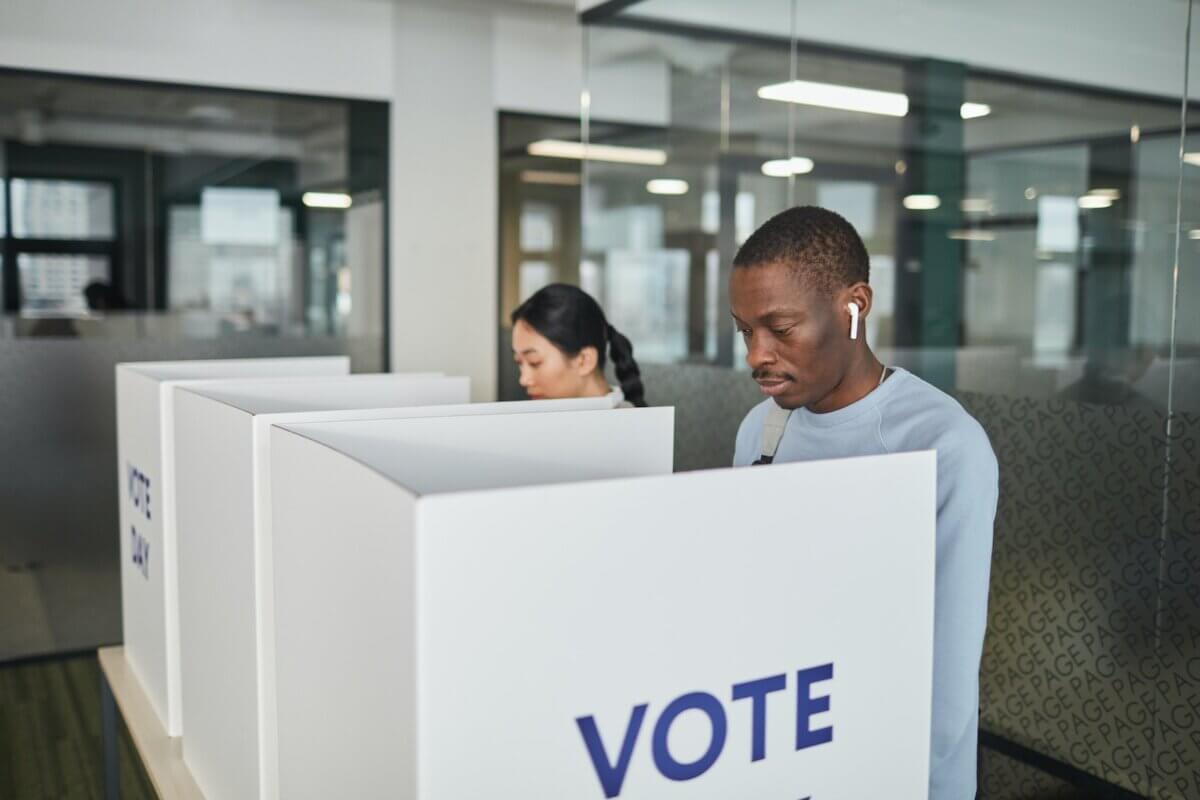UNIVERSITY PARK, Pa. — Mandatory civics tests in 18 states, which prioritize memorization of political facts, have not achieved the desired rise in youth voter participation. Instead, researchers from the Penn State College of Education say a better strategy would be practical instruction on the voter registration process in social studies classes.
“Providing students opportunities to really engage with what leadership means, having discussions and debates with leaders and politicians, mock elections… those are all more practical ways to bring this idea of civic participation and civic knowledge to life,” says Maithreyi Gopalan, an assistant professor of education and public policy, in a university release.
Jilli Jung, a doctoral student studying educational policy, shared a similar sentiment.
“It is important for policymakers to understand that traditional civic education that emphasizes increasing students’ political knowledge through rote memorization and standardized tests does not seem very promising in terms of improving consequential civic engagement outcomes amongst youth, especially voter turnout,” Jung says. “Mandating that schools administer civic tests that focus on political knowledge testing/fact-based assessments might be a wasted policy opportunity when it comes to improving civic engagement among youth.”

Between 2016 and 2022, 18 states introduced the Civics Education Initiative (CEI). This policy mandates high school students to successfully complete a standardized civics test to graduate.
To evaluate the impact of this policy, Jung and Gopalan analyzed data on the voting behaviors of 18 to 22-year-old U.S. citizens from the Current Population Survey (CPS) spanning 1996-2020. The survey, which captures detailed employment and demographic data, monthly interviews with around 54,000 households.
Comparing voter turnout rates before and after CEI implementation, the researchers discovered only a marginal increase of 1.5 percentage points in voting among young people in states with the CEI mandate. This difference isn’t statistically significant.
“At least in the short term, we’re basically finding non-effects across the board,” notes Gopalan.
Despite the lackluster outcome, the policy hasn’t been detrimental.
“Luckily, however, we found that this policy did not negatively affect high school graduation rates, either — a likely unintended consequence of such a policy that we were concerned about,” adds Jung.

The underlying issue with the CEI approach, according to the researchers, is its emphasis on rote memorization without fostering a broader understanding of American politics.
“We would argue that basic CEI policy forces students to memorize a pre-determined set of questions and answers, so they don’t need to explore context,” explains Jung. “This test-based memorization approach is not helpful. Given that CEI uses questions from a publicly available naturalization exam, students may simply memorize answers.”
Instead of CEI, practical classroom experiences like mock elections and involvement in political campaigns might be more beneficial. Gopalan highlights the importance of acting swiftly with the upcoming 2024 presidential election in sight.
“In the short term, I really want to encourage policymakers but also educators to provide more practical guidance to young voters — how to locate a polling booth, how to register to vote,” says Gopalan. “It is essential to encourage and incentivize youth to come out and vote because we need that for a thriving democracy.”
The study is published in the journal Educational Evaluation and Policy Analysis.
What is on a civics test?
Civics tests are used to assess a person’s knowledge of the United States government, history, and civic values. They are typically given to naturalization applicants, but they may also be given to students in public schools and to people who are running for office.
The specific topics covered on a civics test will vary depending on the test, but they typically include the following:
- The structure and function of the U.S. government, including the three branches of government and the roles of the president, Congress, and the Supreme Court
- The Constitution and the Bill of Rights
- American history, including the founding of the country, the Civil War, and the Civil Rights Movement
- Civic values, such as freedom, equality, and democracy
Here are some examples of specific questions that might be asked on a civics test:
- What are the three branches of the U.S. government?
- What is the Bill of Rights?
- How many amendments are there to the Constitution?
- What is the Supreme Court’s role in the U.S. government?
- What are the rights and responsibilities of U.S. citizens?
- Who was the first president of the United States?
- What caused the Civil War?
- What is the meaning of the Pledge of Allegiance?


Civics education does cut down on the number of people who THINK they know what the Constitution means about governance & rights, vs what ignorant pundits trying to achieve ratings tell them.